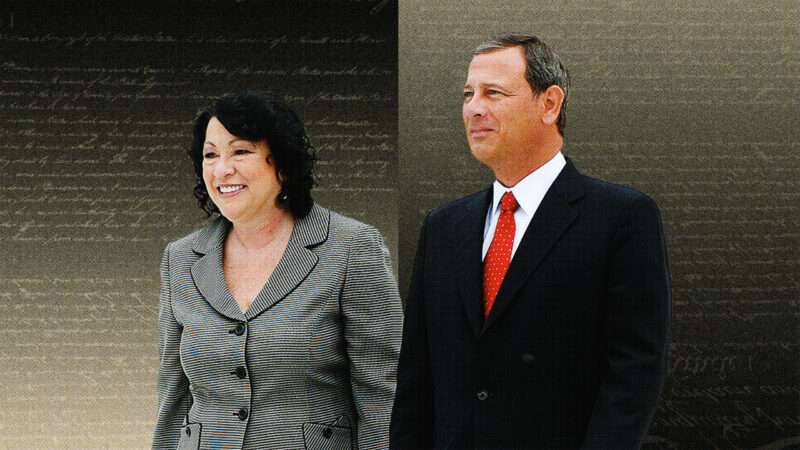
The First Amendment prohibits the government from "respecting an establishment of religion, or prohibiting the free exercise thereof." In her dissent yesterday in the school choice case Carson v. Makin, Justice Sonia Sotomayor accused Chief Justice John Roberts of tipping the scales overwhelmingly and unfairly in favor of the Free Exercise Clause. "This Court continues to dismantle the wall of separation between church and state that the Framers fought to build," she declared.
The case centered on a Maine program that provides tuition assistance to the families of students who live in a district that does not operate its own secondary school. Those families may use that assistance to send their kids to a secondary school of their own choosing, either public or private, so long as it meets certain state standards. One key restriction was that families and students were forbidden from choosing a private school that offered "sectarian" education, even if that school otherwise met the state's standards.
The central legal question in the case was whether the state was engaging in religious discrimination by letting the attendees of non-religious private schools participate in this government program while denying the attendees (and would-be attendees) of religious private schools the same opportunity. Roberts' majority opinion held that such a violation had occurred. "We have repeatedly held that a State violates the Free Exercise Clause when it excludes religious observers from otherwise available public benefits," the chief justice wrote. "A State may not withhold unemployment benefits, for instance, on the ground that an individual lost his job for refusing to abandon the dictates of his faith."
Sotomayor's dissent called that entire approach into question. "Today's decision directs the State of Maine (and, by extension, its taxpaying citizens) to subsidize institutions that undisputedly engage in religious activity," she argued.
Roberts offered a different view of what the First Amendment allows. "A neutral benefit program in which public funds flow to religious organizations through the choices of private benefit recipients does not offend the Establishment Clause," he wrote. At the same time, "a State's antiestablishment interest does not justify enactments that exclude some members of the community from an otherwise generally available public benefit because of their religious exercise."
Sotomayor's reading of the First Amendment would effectively bar religious organizations and individuals from accessing various public programs if the state opted to exclude them, as Maine tried to do here. And her reasoning would extend beyond the school choice context (such as to the unemployment benefits example that Roberts mentioned). By contrast, Roberts' view of the First Amendment offered greater protections for religious groups and individuals in the face of state action.
The post Sotomayor vs. Roberts on Religion, Schools, and the First Amendment appeared first on Reason.com.







